There are many factors to consider when deciding whether or not it’s a good time for you to buy a house. Most of these are personal and have to do with the needs and desires of you and your family. Market conditions may influence your decision, but ultimately the best time for you to buy a house is when you’re ready. And while that’s largely true, knowing what’s going on in the market can still be important, as it gives you a feel for what to expect during your home search and after. For example, recent research shows that the average house is $12,500 more valuable today than it was just a year ago. And, though that will be disappointing news to buyers who have seen their purchasing power reduced over the last year, it should also be encouraging to prospective buyers – as rising prices may mean your future home’s value continues to increase once you’ve become the owner. In other words, if home prices continue to increase at the same pace during the next year, buying a house now may mean you’re – not only getting a better deal now than you would if you wait – but you’ll also be able to start building equity almost immediately. More here.
Should You Buy A House During The Holidays?
How Buying A Home Can Help Save You Money
The argument for or against buying a home usually rests, to some extent, on wealth creation. Conventional wisdom says homeowners – through equity and price appreciation – are building wealth, while renters are throwing their money away each month. Of course, there are some notable instances where that basic argument seemed discredited. Take the most recent financial crisis and housing crash, for example. Following the crash, many people began to question the typical arguments in favor of homeownership, as homeowners saw their home values plummet. Now, a new study from Florida Atlantic University, Florida International University, and the University of Wyoming says homeownership offers no financial advantage when compared to renting and investing in a portfolio of stocks and bonds. However, the study’s findings are based on an assumption that renters will use any extra money, not on consumption, but on investing for the future. According to the results, “The analysis showed that households that are likely to not reinvest buy-rent cash differentials should mostly own rather than rent their primary residence as ownership forces them to save.” In other words, you can create wealth while renting, if you’re disciplined and invest wisely. If not, buying is a better deal. More here.

Rising Number Of
Homeowners Are Equity Rich
Nearly 60% Of Homes Within Reach of Typical Buyer
Not surprisingly, affordability ranks high among home buyers’ concerns. Rising prices and rumors of future mortgage rate increases have some prospective buyers questioning whether or not they can handle the financial obligations that come along with homeownership. However, new data from the National Association of Home Builders says, in most markets, they can. That’s because, the NAHB’s quarterly measure of affordability found 58.3 percent of new and existing homes sold between the beginning of July and the end of September were affordable to families earning the median income of $68,000. That’s encouraging news for hopeful home shoppers. And, according to Robert Dietz, NAHB’s chief economist, there are a rising number of them hoping to take advantage of conditions while they’re still favorable. “Solid economic growth, along with ongoing quarterly job gains and rising household formations, are fueling housing demand,” Dietz said. “Tight inventories and a forecast of rising mortgage interest rates through 2018 will keep home prices on a gradual upward path and slowly lessen housing affordability in the quarters ahead.” More here.

Housing Sentiment Cools Heading Into Fall
There are many reasons autumn is a good time to buy a house. But, because spring and summer are traditionally seen as the best seasons for home shoppers, the housing market often cools in the months following its busiest season. Evidence of this can be found in Fannie Mae’s most recent Home Purchase Sentiment Index. The index – which asks Americans for their feelings about buying and selling homes, mortgage rates, home prices, etc. – reached an all-time high in September but saw a decline in October. In short, fewer Americans feel now is a good time to buy or sell a house. But that’s normal, according to Fannie Mae’s chief economist, Doug Duncan. “The modest decrease in October’s Home Purchase Sentiment Index is driven in large part by decreases in favorable views of the current home-buying and home-selling climates, a shift we expect at this time of year moving out of the summer home-buying season,” Duncan said. “Indicators of broader economic and personal financial sentiment remain relatively steady.” In other words, because Americans generally feel better about their economic security, the dip in sentiment is likely to be temporary. More here.

Commercial Property SOLD!!
102 West Victory Drive
Selling Agent-Travis Sawyer
| Price | $790,000 | Year Built | 1962 |
| Property Type | Retail | Tenancy | Single |

November Newsletter
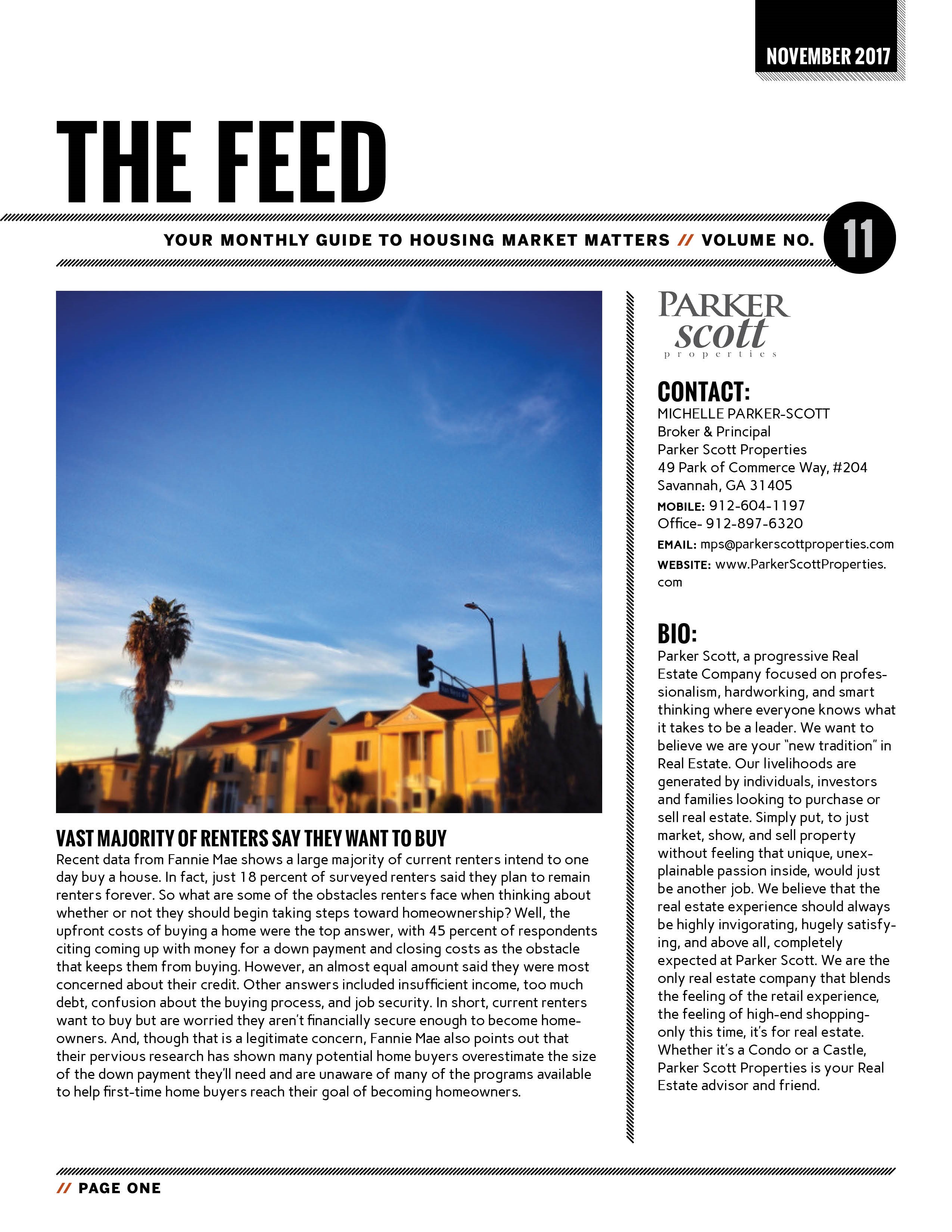

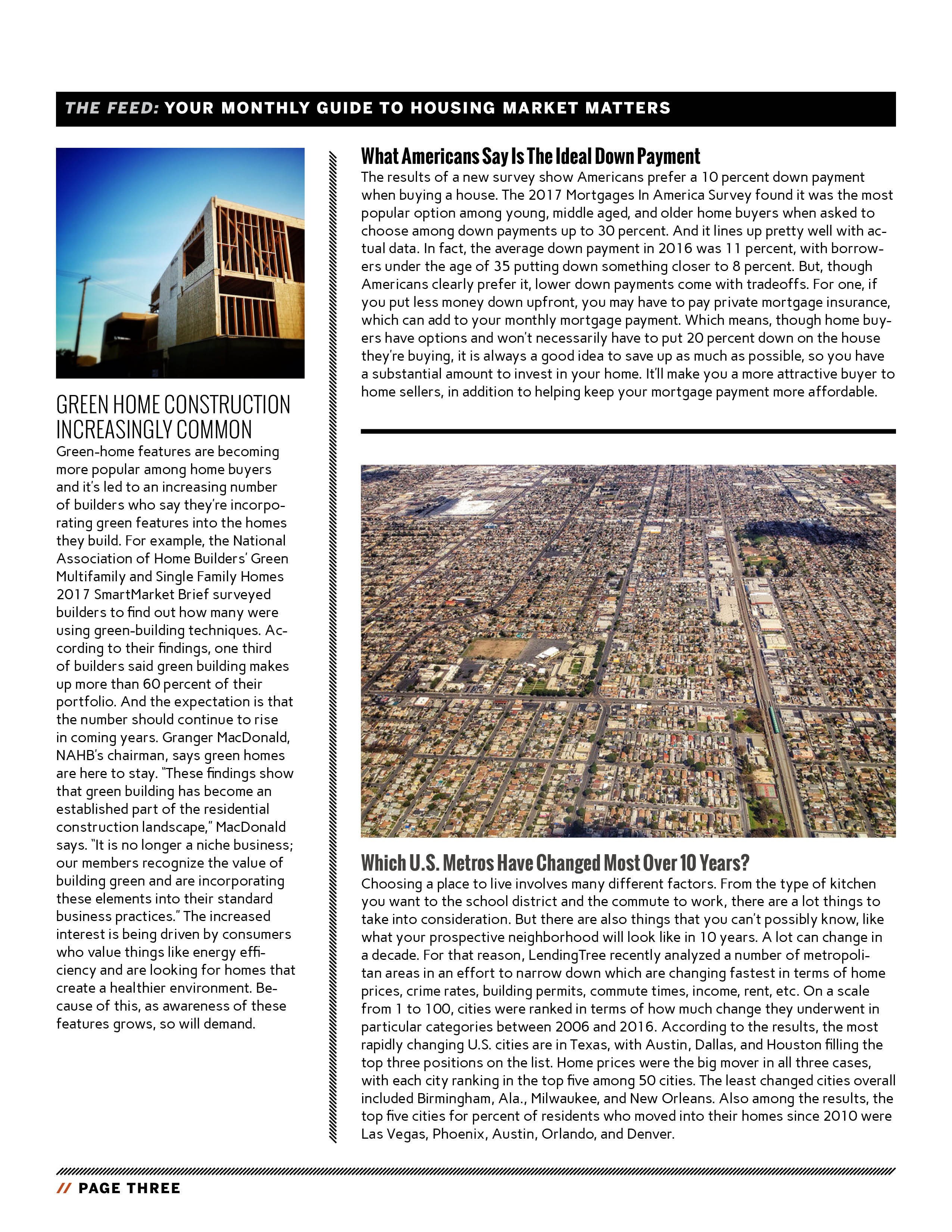
October Newsletter
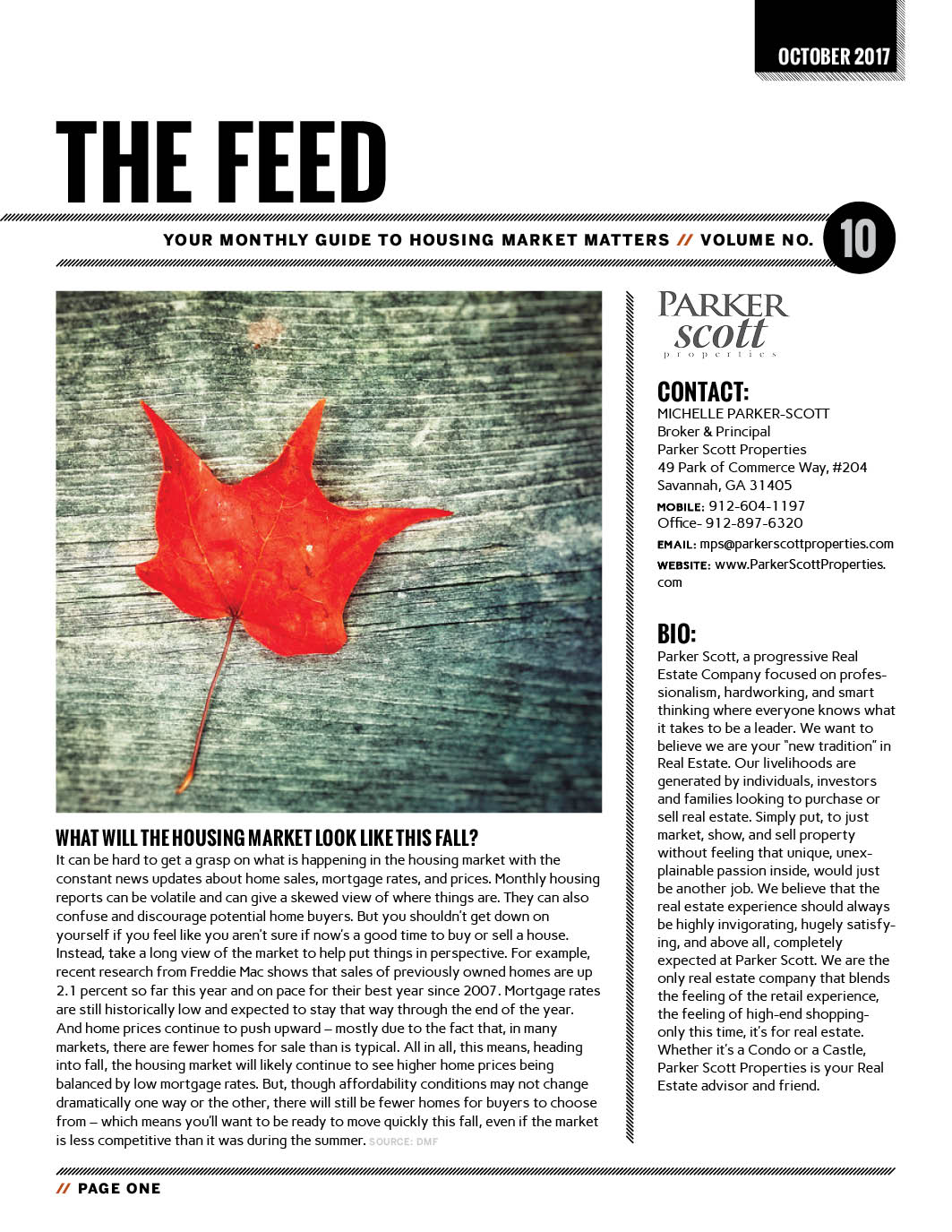
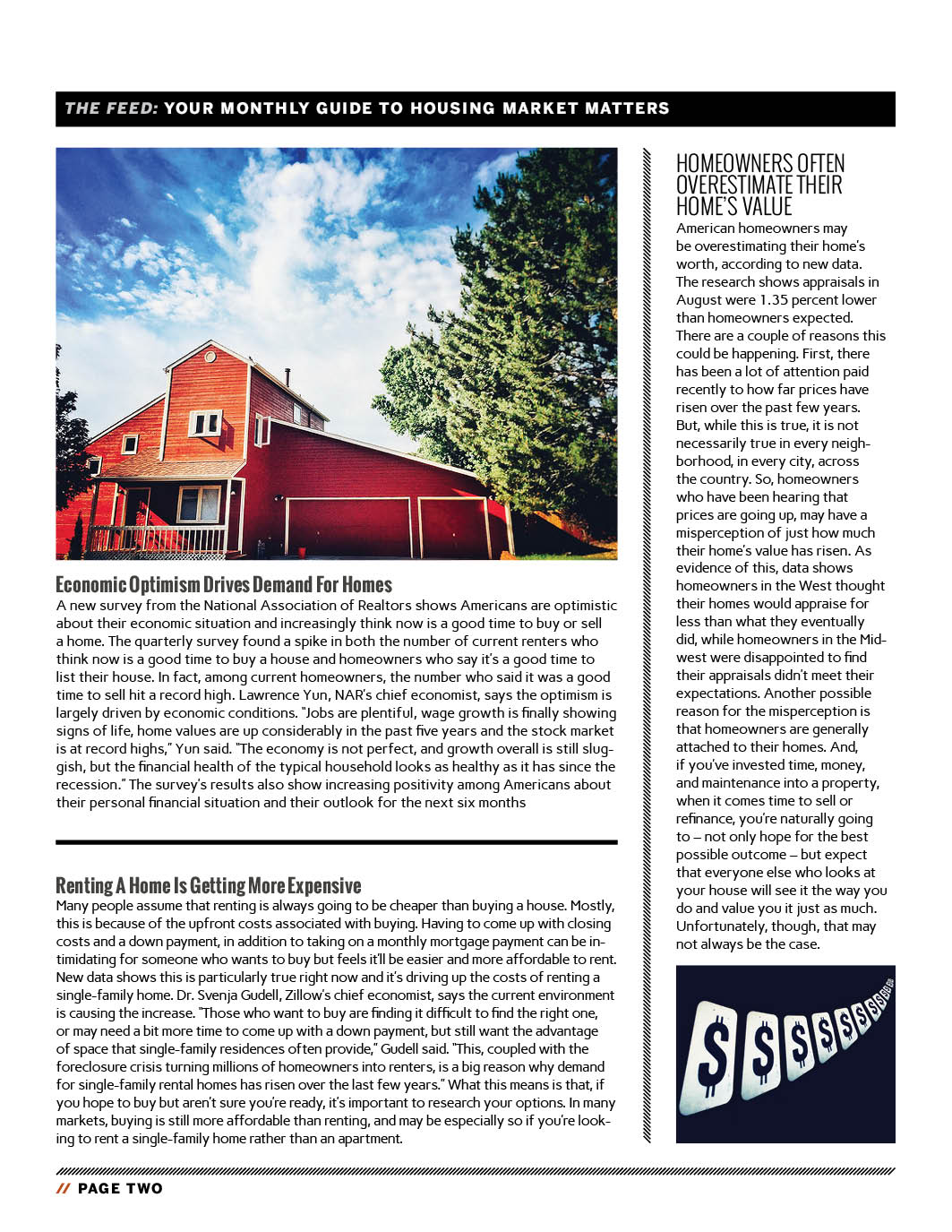
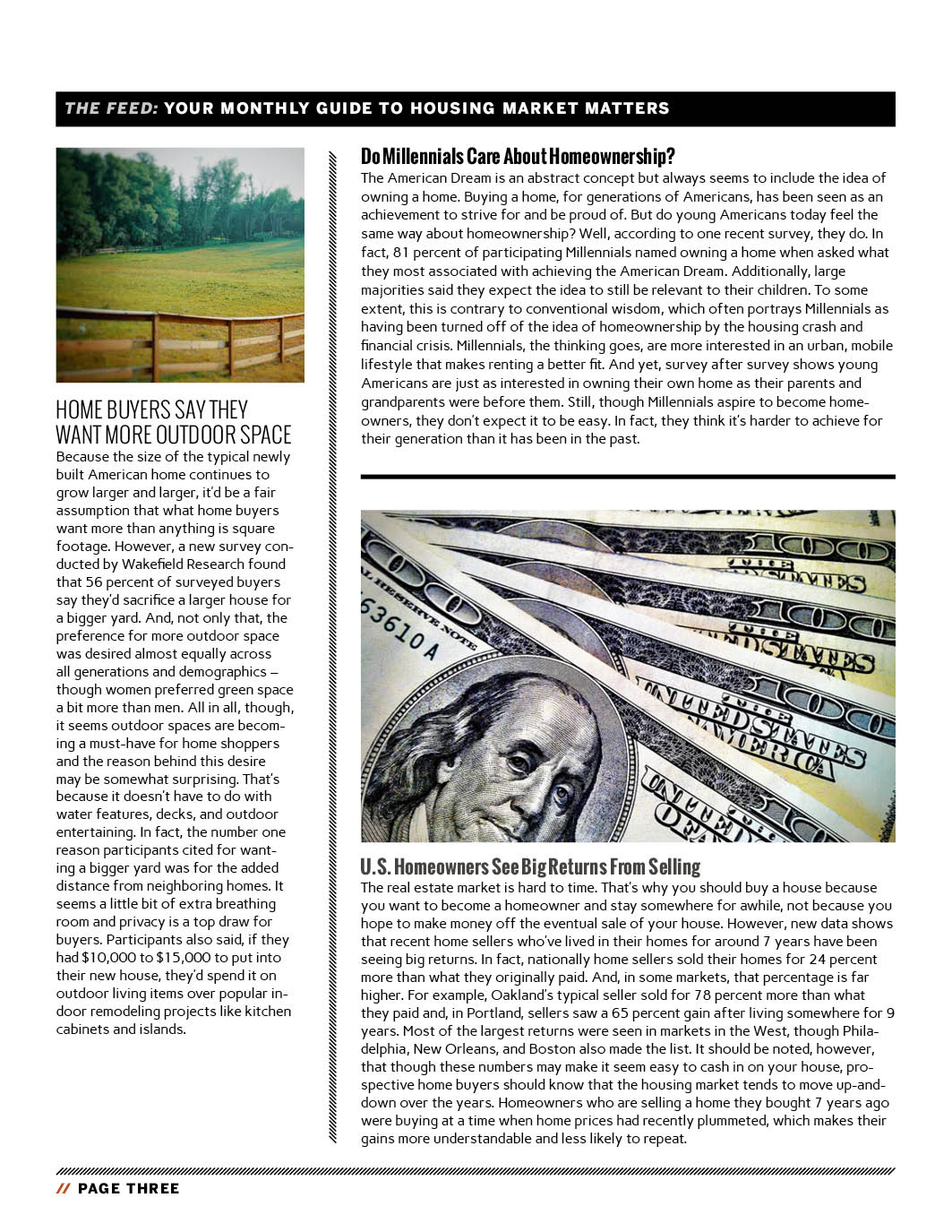
Economic Optimism Drives Demand For Homes
A new survey from the National Association of Realtors shows Americans are optimistic about their economic situation and increasingly think now is a good time to buy or sell a home. The quarterly survey found a spike in both the number of current renters who think now is a good time to buy a house and homeowners who say it’s a good time to list their house. In fact, among current homeowners, the number who said it was a good time to sell hit a record high. Lawrence Yun, NAR’s chief economist, says the optimism is largely driven by economic conditions. “Jobs are plentiful, wage growth is finally showing signs of life, home values are up considerably in the past five years and the stock market is at record highs,” Yun said. “The economy is not perfect, and growth overall is still sluggish, but the financial health of the typical household looks as healthy as it has since the recession.” The survey’s results also show increasing positivity among Americans about their personal financial situation and their outlook for the next six months. More here.
Landscaping is Key to Curb Appeal
 Good landscape design can help you get a better price when it's time to move but will also help beautify your neighborhood and please your neighbors in the meantime. If you aren’t that handy in the garden, start with your lawn. A recent article from Freddie Mac lays out a number of tips to help you get started. Among them, good to first identify what type of grass you have. This will help you know what seed to buy if you need to fill any dead spots. You should also be careful not to cut your lawn too short or give it too much water. Grass needs a little length to help it absorb sunlight and maintain healthy roots. Too much watering can also damage roots and will cause more weeds to grow. Another tip is to be careful with fertilizers and pesticides. Break fertilizer applications up throughout the season rather than doing it all at once. And be careful with pesticides, as they may be more trouble than they're worth. According to the article, lawn issues are more likely going to be the result of water, weather and lawn mower damage than pests. Following these simple rules should help you achieve a greener and more luscious lawn. More here.
Good landscape design can help you get a better price when it's time to move but will also help beautify your neighborhood and please your neighbors in the meantime. If you aren’t that handy in the garden, start with your lawn. A recent article from Freddie Mac lays out a number of tips to help you get started. Among them, good to first identify what type of grass you have. This will help you know what seed to buy if you need to fill any dead spots. You should also be careful not to cut your lawn too short or give it too much water. Grass needs a little length to help it absorb sunlight and maintain healthy roots. Too much watering can also damage roots and will cause more weeds to grow. Another tip is to be careful with fertilizers and pesticides. Break fertilizer applications up throughout the season rather than doing it all at once. And be careful with pesticides, as they may be more trouble than they're worth. According to the article, lawn issues are more likely going to be the result of water, weather and lawn mower damage than pests. Following these simple rules should help you achieve a greener and more luscious lawn. More here.

